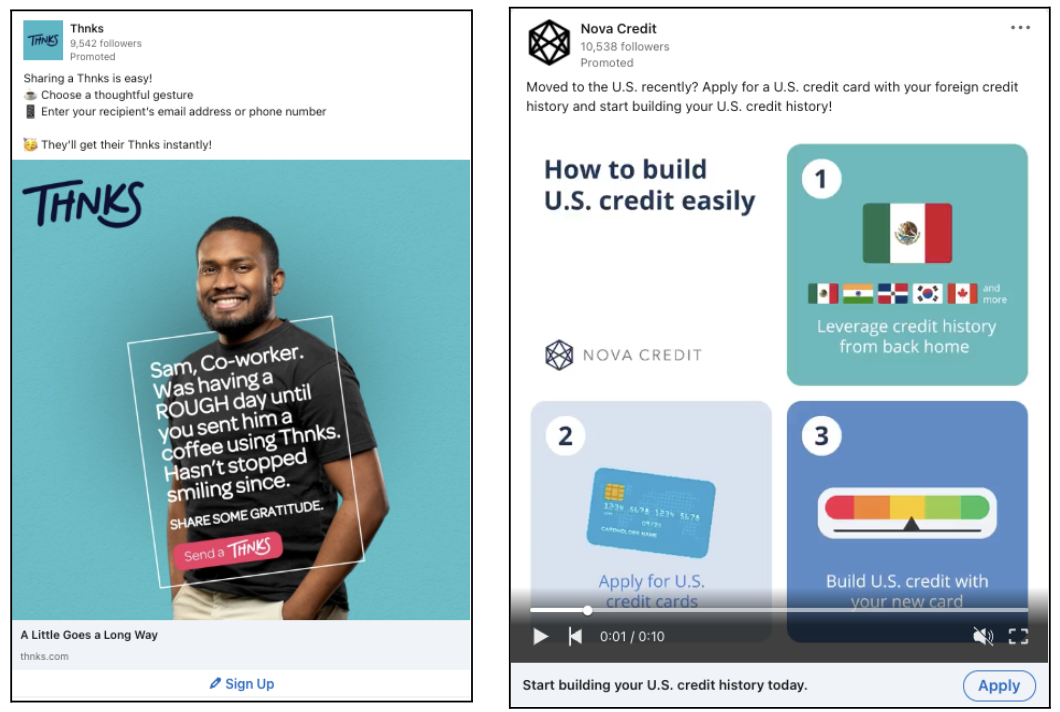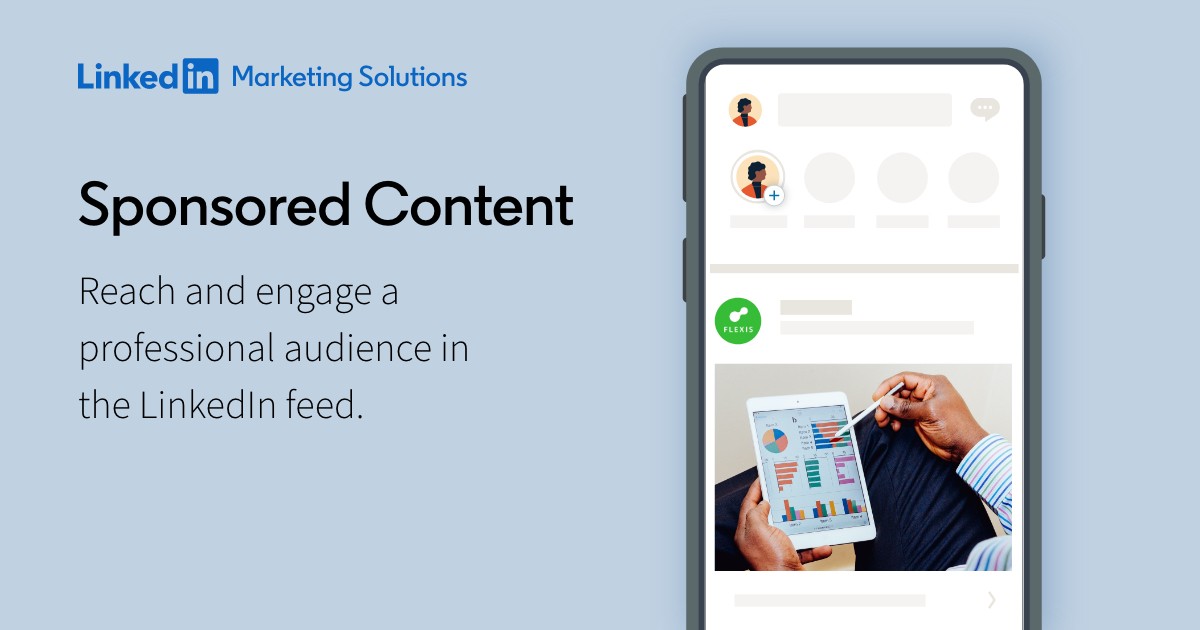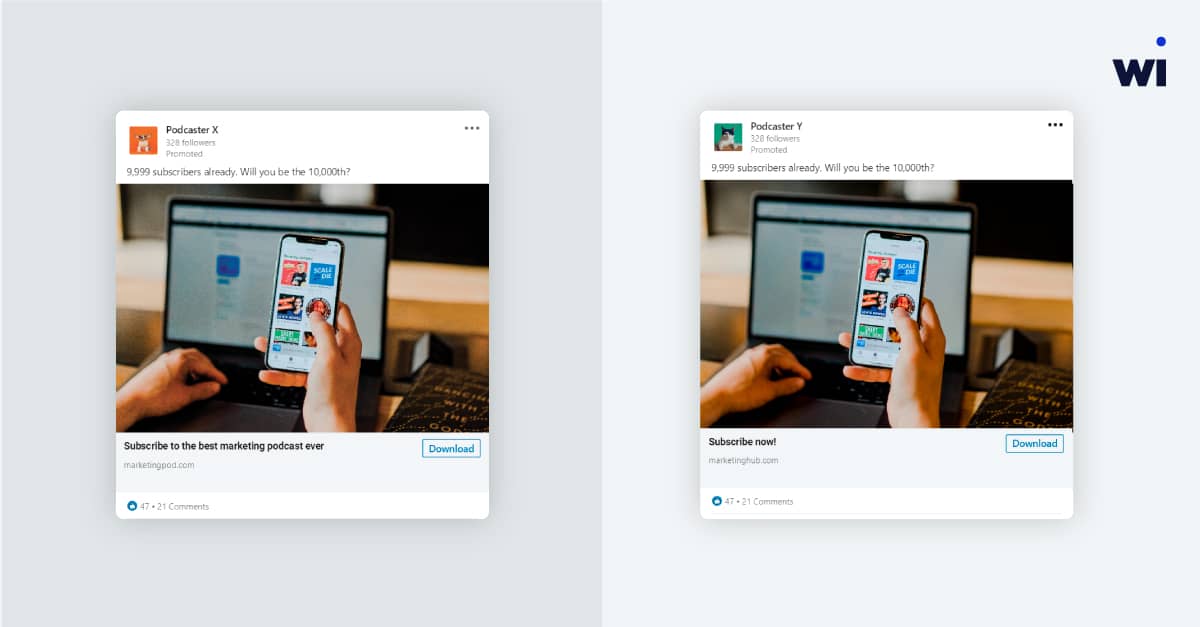Yes, LinkedIn offers paid advertising options, including sponsored content and direct message ads. These paid posts help businesses reach a targeted audience effectively.
LinkedIn has become a powerful platform for professionals and businesses alike. With over 900 million users, it offers unique opportunities for networking and marketing. Companies can showcase their products, services, and job openings through organic posts. However, organic reach has its limitations.
Paid posts, or sponsored content, enhance visibility and engagement. They allow businesses to target specific demographics, industries, and job roles. This targeted approach helps brands connect with their ideal audience. Understanding how to leverage LinkedIn’s paid advertising can significantly impact your marketing strategy and drive better results for your business.

Credit: tuffgrowth.com
Introduction To Linkedin’s Monetization
LinkedIn has transformed how professionals connect. With its growing user base, monetization strategies have emerged. Businesses and individuals explore paid posts to enhance visibility.
The Rise Of Professional Networking Online
Online networking has changed the business landscape. Professionals seek connections through various platforms.
- Increased global connectivity
- Access to industry-specific groups
- Real-time communication
LinkedIn stands out as a leader in this space. It offers unique features for professionals.
Linkedin’s Role In The Digital Economy
LinkedIn plays a vital role in today’s digital economy. It connects job seekers with employers effectively.
| Feature | Description |
|---|---|
| Job Listings | Employers post jobs for candidates to apply. |
| Networking Opportunities | Users connect with peers and industry leaders. |
| Content Sharing | Users share articles, insights, and updates. |
Paid posts can enhance visibility on LinkedIn. They help brands reach targeted audiences.
- Sponsored content
- Increased engagement
- Broader reach
Understanding LinkedIn’s monetization opens new opportunities. It benefits both individuals and businesses.
Linkedin’s Economic Model
LinkedIn operates under a unique economic model. It combines social networking with professional development. The platform generates revenue through various strategies.
Primary Revenue Streams
LinkedIn has several key revenue streams:
- Premium Subscriptions: Users pay for advanced features.
- Advertising: Brands can promote their products.
- Recruitment Services: Companies pay to find talent.
- Learning Solutions: Users pay for courses and training.
| Revenue Source | Description | Examples |
|---|---|---|
| Premium Subscriptions | Access to advanced tools and insights. | LinkedIn Premium, Sales Navigator |
| Advertising | Sponsored content and ads for brands. | Sponsored InMail, Display Ads |
| Recruitment Services | Tools for companies to hire talent. | LinkedIn Talent Solutions |
| Learning Solutions | Courses for professional development. | LinkedIn Learning |
Comparing Linkedin To Other Social Platforms
LinkedIn stands out from other social media platforms. Here’s a quick comparison:
- Facebook: Focuses on social connections.
- Twitter: Emphasizes real-time news.
- Instagram: Visual content sharing.
LinkedIn targets professionals and businesses. It offers tools for networking and career growth.
Other platforms rely heavily on ad revenue. LinkedIn diversifies its income through subscriptions and services.
The Concept Of Paid Posts
Paid posts are a powerful tool for businesses and individuals. They help promote content to a wider audience. LinkedIn offers paid posts to enhance visibility and engagement. Understanding how these work is essential for effective marketing.
Basics Of Paid Content
Paid content refers to advertising that brands pay for. This content appears in users’ feeds. It targets specific audiences based on various factors.
- Targeting: Brands can choose who sees their posts.
- Formats: Options include sponsored content, text ads, and more.
- Budget: Companies set their own budget for campaigns.
Understanding the basics of paid content helps in making informed choices. Brands can create effective strategies to reach their goals.
Paid Posts On Social Media
Social media platforms offer paid post options. LinkedIn is among the leading platforms for this. Here’s a quick comparison of popular platforms:
| Platform | Ad Format | Targeting Options |
|---|---|---|
| Sponsored Content, Text Ads | Industry, Job Title, Location | |
| Image Ads, Video Ads | Interests, Demographics | |
| Story Ads, Carousel Ads | Behavior, Engagement |
Paid posts on LinkedIn help businesses connect with professionals. They boost brand awareness and drive traffic to websites.
Paid Posts On Linkedin: Myth Or Reality?
Many professionals ask, do paid posts exist on LinkedIn? This question sparks curiosity among marketers. Understanding paid posts can enhance your LinkedIn strategy.
Investigating The Truth
LinkedIn does not offer traditional “paid posts” like other platforms. Instead, it provides various advertising options. Here are some key features:
- Sponsored Content: Boosts visibility of your posts.
- Text Ads: Simple ads on the sidebar.
- InMail Ads: Direct messages to user inboxes.
- Video Ads: Engaging video content for promotion.
These options allow users to promote content effectively. Paid advertising helps reach a broader audience. Knowing the differences is essential for success.
Official Statements From Linkedin
LinkedIn clarifies its stance on paid posts. The platform focuses on professional networking. Here are some key points from official sources:
| Feature | Description |
|---|---|
| Sponsored Content | Promotes your posts to targeted users. |
| Text Ads | Promotional ads displayed in the sidebar. |
| InMail Ads | Direct messages to LinkedIn users. |
| Video Ads | Video content to engage users. |
LinkedIn emphasizes its advertising solutions. The platform aims to enhance professional connections. Understanding these options can boost your marketing efforts.
Linkedin’s Advertising Solutions
LinkedIn offers various advertising solutions. These tools help businesses reach their target audience. Companies can promote their products and services effectively. Two main types of paid posts are available.
Sponsored Content
Sponsored Content allows brands to share posts directly in the feed. Users see these posts as part of their regular content. This method boosts visibility and engagement. Here are some key features:
- Appears in the LinkedIn feed.
- Can be images, videos, or articles.
- Targets specific audiences based on demographics.
- Measures performance through analytics.
Sponsored Content helps brands tell their story. It builds trust and connects with users. Businesses can create campaigns that suit their goals.
Direct Sponsored Content
Direct Sponsored Content offers a unique approach. It allows brands to share posts without appearing on their company page. This feature provides more flexibility. Key aspects include:
- Test different messages easily.
- Target specific audience segments.
- Maintain a clean company page.
- Utilize A/B testing for optimization.
Direct Sponsored Content helps brands innovate. They can try new ideas without cluttering their profile. This method increases engagement and effectiveness.
| Feature | Sponsored Content | Direct Sponsored Content |
|---|---|---|
| Visibility | Appears on feed | Not on company page |
| Targeting | Demographic targeting | Specific audience segments |
| Testing | Limited A/B testing | Easy A/B testing |
| Content Type | Images, videos, articles | Custom posts only |

Credit: searchengineland.com
User-generated Content And Monetization
LinkedIn has become a hub for user-generated content. Professionals share ideas, insights, and experiences. This content helps them connect and engage with others. Monetization is an intriguing aspect of this platform.
Users can leverage their content for professional growth. They can attract job offers, clients, or partnerships. This brings us to the question of how LinkedIn supports content creators.
Influencers On Linkedin
Influencers play a significant role on LinkedIn. They create valuable content that resonates with audiences. Here are some characteristics of successful LinkedIn influencers:
- Expertise: They have deep knowledge in their field.
- Engagement: They interact with their followers regularly.
- Authenticity: They share genuine experiences and stories.
These influencers often gain visibility. They can also explore monetization opportunities. Many collaborate with brands for sponsored content. This creates a win-win situation for both parties.
Does Linkedin Reward User Content?
LinkedIn recognizes and rewards quality content. Users can gain visibility through likes, comments, and shares. The platform highlights popular posts. This can lead to increased connections and followers.
Here’s how LinkedIn supports content creators:
| Reward | Description |
|---|---|
| Engagement Metrics | Users receive insights on how their content performs. |
| Featured Posts | High-quality content may be featured on LinkedIn’s homepage. |
| Networking Opportunities | Engaging content attracts connections and collaborations. |
Creating quality content on LinkedIn can lead to monetization. Users can build their brand and attract opportunities. The potential is immense for those who invest time and effort in their posts.
Alternatives To Paid Posts For Visibility
Many users seek ways to increase their visibility on LinkedIn without spending money. Organic strategies can enhance your reach. Understanding LinkedIn’s algorithm helps in crafting effective posts.
Organic Reach Strategies
Using organic methods can boost your LinkedIn presence. Here are effective strategies:
- Post Quality Content: Share valuable insights and helpful tips.
- Engage with Others: Comment and interact with your network.
- Use Hashtags: Add relevant hashtags to your posts.
- Join Groups: Participate in LinkedIn groups related to your field.
- Share Visuals: Use images or videos to attract attention.
Linkedin’s Algorithm And User Engagement
Understanding LinkedIn’s algorithm is crucial for visibility. The algorithm favors content that encourages user engagement. Consider these factors:
| Factor | Description |
|---|---|
| Engagement Rate | Higher likes, comments, and shares boost visibility. |
| Post Timing | Share content during peak hours for better reach. |
| Relevance | Content must align with your audience’s interests. |
Creating engaging posts increases user interaction. Ask questions to spark conversations. Use polls to encourage participation. Share success stories to inspire your network.
Case Studies And Success Stories
Many brands and individuals have found success using LinkedIn. This platform offers unique opportunities for paid posts. Let’s explore some inspiring case studies and success stories.
Brands Leveraging Linkedin Effectively
Several brands have achieved impressive results with LinkedIn ads. They target specific audiences and gain valuable exposure. Here are a few notable examples:
- Microsoft: Used sponsored content to promote new products. They increased engagement by 200%.
- HubSpot: Leveraged LinkedIn to generate leads. Their conversion rate improved significantly.
- Adobe: Focused on thought leadership posts. They built a community of over 100,000 followers.
| Brand | Strategy | Result |
|---|---|---|
| Microsoft | Sponsored content | 200% engagement increase |
| HubSpot | Lead generation ads | Significant conversion rate boost |
| Adobe | Thought leadership posts | 100,000 followers gained |
Individual Success Through Linkedin Networking
Individuals can also thrive on LinkedIn. Many have used networking to achieve personal goals. Here are some success stories:
- Jane Smith: Built connections in her industry. She landed her dream job through a referral.
- Mark Johnson: Shared his expertise through posts. His content reached thousands and attracted new clients.
- Emily Davis: Joined LinkedIn groups. She found mentors and expanded her knowledge.
These stories highlight the power of LinkedIn. Both brands and individuals can achieve remarkable results. Engaging with the right audience leads to success.
The Future Of Linkedin And Monetization
LinkedIn is evolving rapidly. The platform seeks new ways to generate revenue. Users want more features and benefits. Paid posts could be a part of this future.
Emerging Trends
Trends indicate significant changes in LinkedIn’s approach. Key trends include:
- Increased Sponsored Content: More businesses use sponsored posts.
- Video Content Growth: Short videos attract more engagement.
- Personal Branding: Users invest in personal branding strategies.
- Online Learning: Courses and training are in high demand.
These trends suggest a shift toward paid features. Users may pay for enhanced visibility and engagement.
Predictions For Linkedin’s Revenue Models
Experts predict various revenue models for LinkedIn. Here are some potential models:
| Revenue Model | Description |
|---|---|
| Subscription Services | Premium features for users and businesses. |
| Enhanced Advertising | Targeted ads based on user behavior. |
| Paid Posts | Users pay to boost their content reach. |
| Online Courses | Revenue from educational content and certifications. |
These models highlight LinkedIn’s focus on monetization. They aim to improve user experience while generating income.
LinkedIn’s future looks bright with new opportunities. Users can expect innovative features and services.
Conclusion: Navigating Linkedin For Success
Understanding LinkedIn’s paid posts can elevate your professional presence. Using the right strategies boosts visibility and engagement. Let’s explore best practices and final thoughts on LinkedIn’s paid posts.
Best Practices For Users
- Target Your Audience: Use LinkedIn’s targeting options wisely.
- Create Engaging Content: Focus on visuals and concise messaging.
- Monitor Performance: Analyze metrics to see what works.
- Optimize Budget: Start small and adjust based on results.
- Use A/B Testing: Experiment with different ad formats.
Final Thoughts On Linkedin’s Paid Posts
LinkedIn’s paid posts can significantly impact your reach.
Investing in paid promotions helps showcase your brand.
Focus on quality content to engage your audience.
Regularly assess your strategies to stay relevant.
Leverage analytics to refine your approach.
Success on LinkedIn requires consistent effort and learning.

Credit: business.linkedin.com
Frequently Asked Questions
Does Linkedin Offer Sponsored Content?
Yes, LinkedIn provides sponsored content options. These paid posts allow businesses to promote their content directly in users’ feeds. Sponsored content helps increase visibility and engagement with target audiences. Marketers can create tailored campaigns to reach specific demographics on the platform.
How Much Do Linkedin Ads Cost?
LinkedIn advertising costs vary based on several factors. Pricing typically depends on the chosen ad format and targeting options. On average, you might spend between $2 to $7 per click. A minimum budget of $10 per day is usually required for LinkedIn ads.
Can I Boost Posts On Linkedin?
Currently, LinkedIn does not offer a “boost” feature for posts. However, you can promote content through sponsored updates or ads. This allows you to extend your reach beyond organic followers. Using targeted ads can help you connect with a wider audience effectively.
What Types Of Ads Can I Run On Linkedin?
LinkedIn offers various ad formats to choose from. These include sponsored content, text ads, video ads, and message ads. Each format serves different marketing goals and audience engagement strategies. Businesses can select the format that aligns best with their objectives.
Conclusion
LinkedIn does offer paid posts through its advertising options. These tools help businesses reach specific audiences effectively. By investing in LinkedIn ads, companies can enhance visibility and engagement. Understanding these features can lead to better marketing strategies. Explore LinkedIn’s advertising solutions to maximize your brand’s potential.
